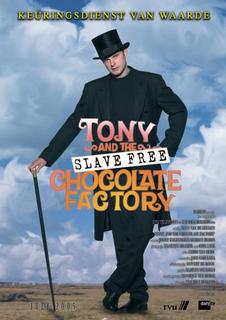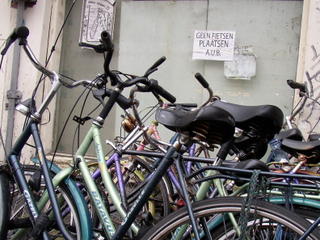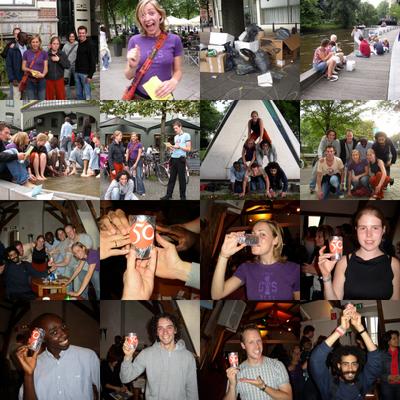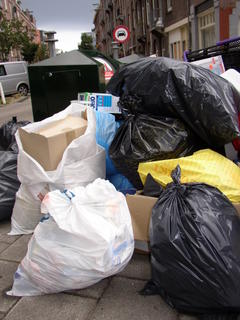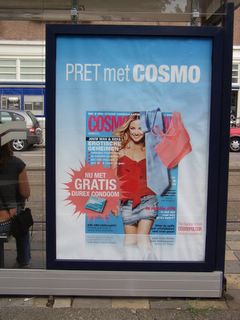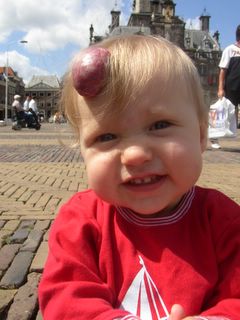misunderstanding
[Note to English-speaking readers: This is my own translation of my last post ("misverstand"). I'd figure I'd clue you in on the story because it's a pretty amusing one -- but I think I was somehow morally obligated to post it in Dutch first, as a kind of penance. Read on to see what I mean... Nederlanders: Zie beneden ("misverstand") voor het oorspronkelijke verhaaltje in 't Nederlands]
Well, um... OK. Perhaps I was a little bit defensive -- but at least in the end, the experience was an entertaining lesson in cultural and linguistic misunderstanding...
Our family was hosting a group of eight people for dinner, as a part of our church's HomeGroup50 (see my earlier post from August 22 for a little explanation of this concept). And without even thinking about it, we fell into Dutch as our language for the evening -- which I actually considered to be a positive development and a great opportunity for Marci and me to practice our Dutch... But, of course I made a lot of linguistic mistakes throughout the evening (as I most likely did in the last post which I tried to write in Dutch!). A misused word here, a poorly-constructed sentence there... You know, normal stuff for any foreigner. Nevertheless, it can be very frustrating for a person such as myself -- who typically prides himself on the ability to effectively articulate his thoughts in his first language (English). And after a little while, I started to feel, well, kind of embarassed and self-conscious.
So after dinner, I proposed that we share a little bit of discussion over a passage from the Bible (Acts 2:42-47) before moving on to enjoy our dessert -- or, "nagerecht" as it's said in Dutch. And while I went to grab my Bible, someone in the group made an off-the-cuff remark about our dessert -- saying something like "I hope that it's not so fluid (vloeibaar) by now" (because it was a warm day and someone had brought ice cream)... However, I didn't hear "fluid" (vloeibaar), but rather "fluent" (vloeiend) , and since I hadn't picked up on the fact that our dessert was the subject of the comment -- I jumped to the conclusion that I was beign mocked for my Dutch deficiencies! So I ask (pretty defensively): "Well then, what should I say?!?" as I assumed that I'd mistakenly used the wrong word for dessert (nagerecht). "Would you prefer that I call it a toestje?!?"
Well at this moment, to my great chagrin, everyone in the room really started to laugh -- because there is no such word in the Dutch language as "toestje." It was clear to everyone that I intended to use another Dutch word for an after-dinner treat, "toetje," (with no "s" in the middle), but in the midst of my defensiveness I actually fell victim to the very presumption that had caused my self-conscious outburst! Everyone laughed, and discussion ensued regarding the best Dutch translation of the word "dessert" -- of course, you could say "toetje," (but not "toestje!")... The French loan-word "dessert" (pronounced like the French "day-sayrt") could also work... And then someone brightened, saying that actually a really good Dutch word to use in such a situation would be (you guessed it) "nagerecht." I, of course, protested: "But that's the word I used in the first place!"
And finally we realized the misunderstanding that had taken place -- to my great embarassment -- and we were all able to laugh together. But not before we learned an important lesson: "Be careful! Because it's often the little things that can create the biggest misunderstandings." And "You should never take life too seriously."
What a stupid American I can be at times! But at least we can laugh about it now...
